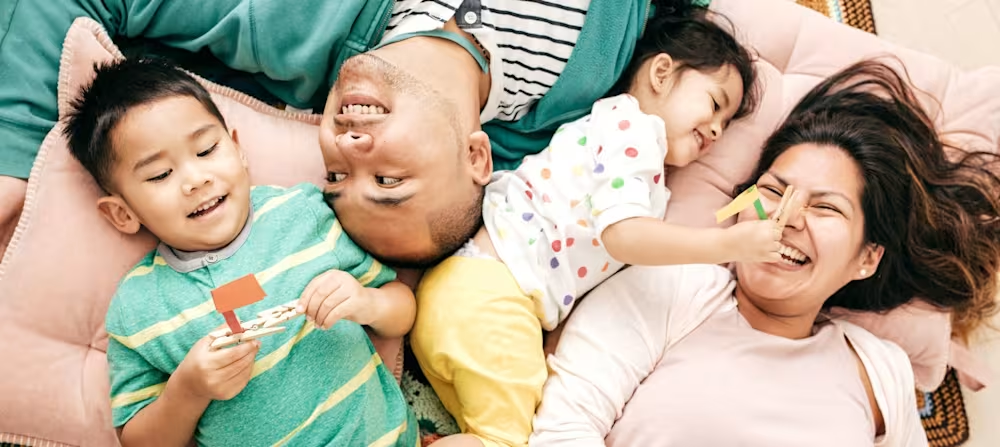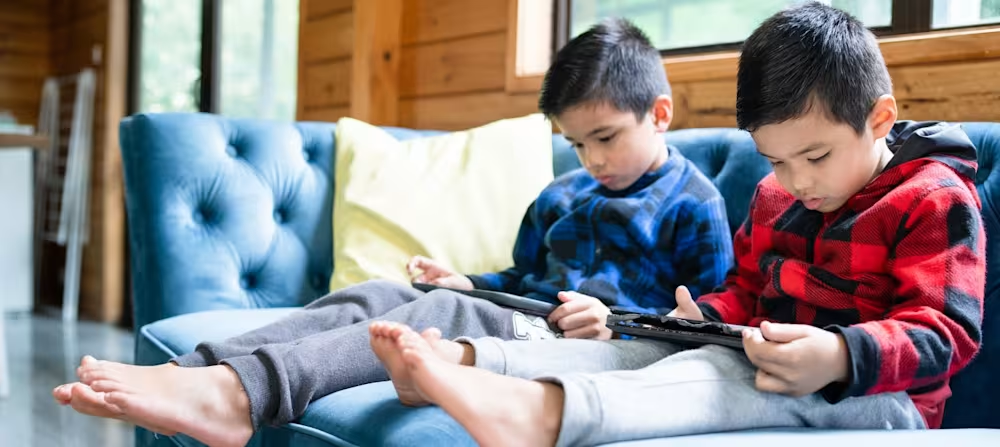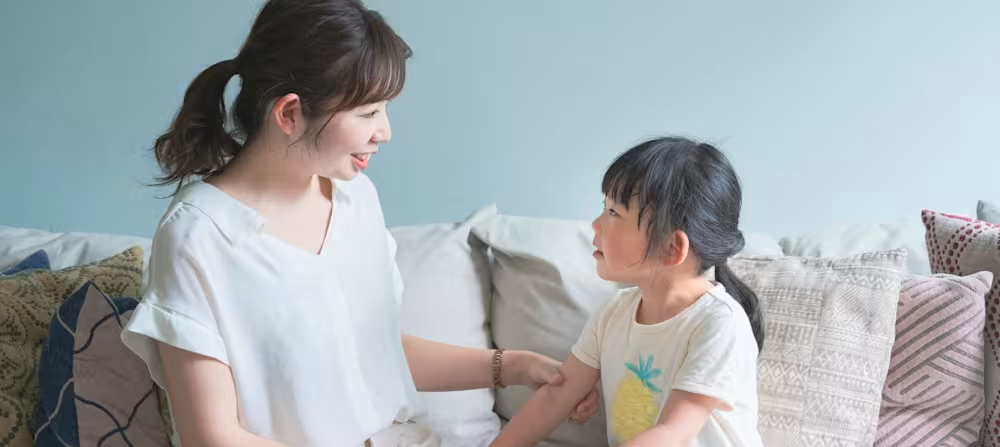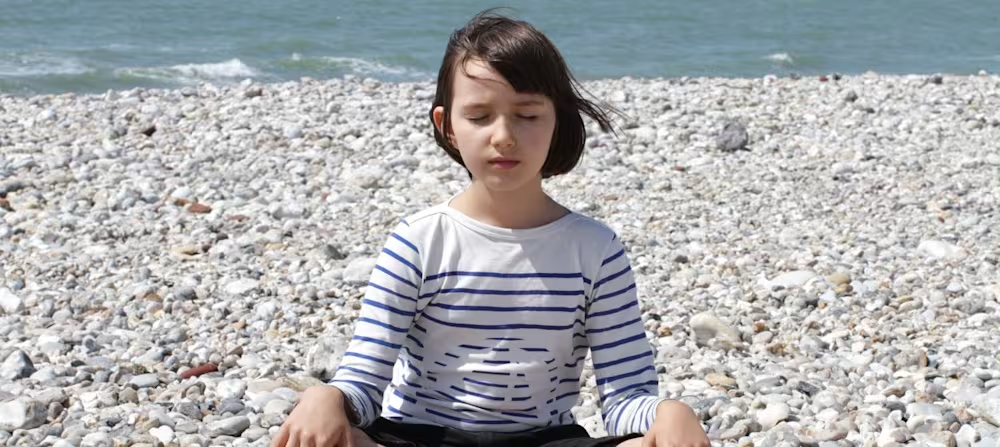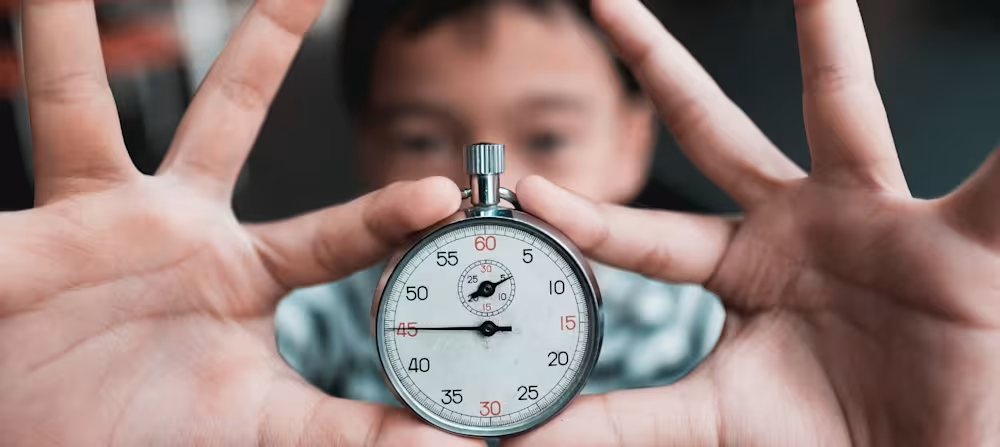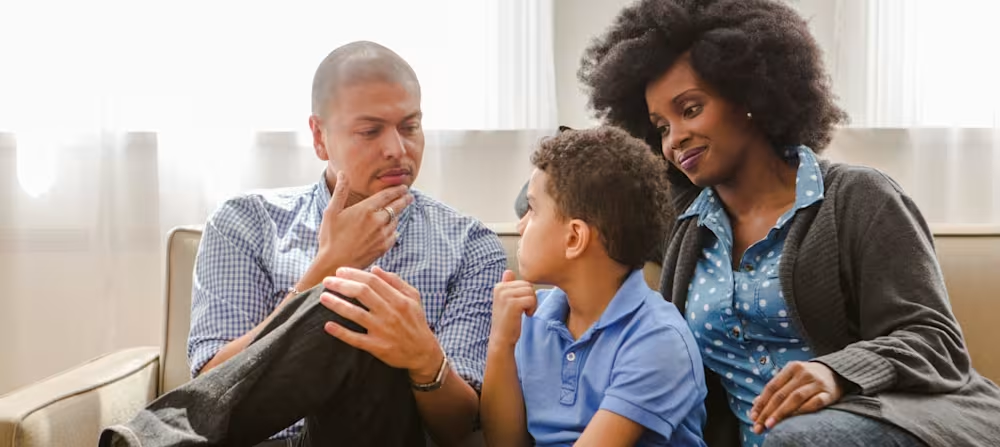What is positive parenting self-reflection?
Updated Aug 14, 2025

Imagine that you are hired for the most important job position of your life. Now imagine that you are expected to start today, with no previous training. Welcome to parenthood!
Raising a child (or more than one) is a demanding and rewarding job, one that has no schedule, little to no breaks, and comes with no manual. While there are many resources available for parents to learn , sometimes as parents we find ourselves in emotionally demanding situations that don’t help us be the best parents we can be.
Our children model our behaviors, the words we say to them become their inner words, and how we react to different situations teaches them how to react to what happens around them. In other words, children benefit more from us when we are our best version of ourselves [], and that means that sometimes we have to sit back and reflect on our thoughts and feelings in order to be more emotionally aware and better role models for our children.
A positive parenting self-reflection involves listening to our emotions, reflecting on them, and finding ways to manage them in order to foster better communication and relationships with our children. A positive parenting self-reflection also involves reflecting on what values and aspirations we have for ourselves, our children, and our relationships with them.
How to start positive parenting self-reflection
Positive parenting has many benefits, but adopting an takes time, patience, and a lot of effort. Since the results aren’t reaped immediately, taking the time to stop and do a self-reflection can help keep our focus during the hard times (and our sanity!). Self-reflection is not something that many of us are taught, so it can be hard to begin integrating this habit into our day-to-day lives. Here are some tips to start implementing positive parenting self-reflections:
Start journaling
Whether it be on pen and paper or in the notes app on your phone, set away 5 - 10 minutes during the day to write down your thoughts and feelings. You can use journaling prompts, or just write down your thoughts and feelings about a certain situation or behavior your child is displaying.
Let’s say that you have been experiencing with your toddler for a while now and your frustration is through the roof — bedtime is not fun at all. After your little one goes to bed, sit back and reflect: What is happening prior to bedtime? How is my mood in the afternoon? What happens when I speak in a calm voice? What happens when I get frustrated? How is my child responding to my emotions?
This strategy works best when you actually have the time to sit down on your own, so make sure that you find some alone time to be able to give this exercise the thought it deserves.
Pay attention to your immediate situation
Sometimes in the day-to-day hustle, we brush off our feelings, and by the end of the day, we are too tired to confront them and reflect on them.
Most of the time, it is very hard to take a break from a hard parenting situation. It is not realistic to take a pause from a grocery tantrum at 10 AM to stop and write down our feelings. But, we can find a time shortly after to reflect on exactly what we were feeling and thinking at that moment.
After hard parenting moments, find at least 1 - 2 minutes and write down all of your thoughts and feelings about the situation. When you reflect on your feelings as soon as they happen, you are more likely to remember exactly what you were feeling and thinking, which makes it easier for you to work on those emotions later. Tip: If you don’t have time to actually stop to reflect because you need to drive someplace else, use the voice memo app on your phone and let your phone write down your thoughts for you!
Find some alone time
I know, I know, it is very hard to get some alone time. While we all deserve a break, alone time doesn’t necessarily mean that you have to be 100% alone, it just means that you have some time to think.
If your little one is in a contact napping stage, or you have a 10-minute stroller walk to and from the park, use that time to be present with your emotions and thoughts - and yes, that means no podcast, no music, and no social media. Being constantly connected to a device means that we are more disconnected from what happens inside us, and sometimes we forget what it's like to just be with ourselves. Be mindful of those times when you actually have some downtime from taking care of others' needs and make sure you take care of your own needs before putting your mind elsewhere.
If you already have some alone time in your daily routine, like a daily workout, for example, you can incorporate self-reflection into your stretching routine or during your warm-up. If it's too hard to carve out some new alone time, use the one you have already to your advantage!
What are some good self-reflection questions?
For many adults, using prompts during self-reflection moments is helpful to get those thoughts and feelings flowing. Below is a list of questions that you can ask yourself during your self-reflection time. Remember, parenting is hard and this is not meant to be an exercise to make you feel bad about yourself, but rather an opportunity to be mindful of your feelings and wants of your parenting journey.
General self-reflection questions:
What values do I want my children to have when they grow up?
What type of parent do I want to be?
What parenting style do I feel more comfortable with?
Am I taking care of myself and my needs as well?
Are there specific stressors that affect my parenting?
How well are my partner and I working together toward the parenting style we want to achieve?
What tools help me, the parent, in a more consistent way?
Self-reflection questions about a specific episode or behavior with your child:
What mood was I in before this situation happened?
Is this behavior something new or recurring in my child?
Is there a noticeable pattern of this behavior?
Can this behavior be caused by an unmet need (hunger, tiredness)?
What do I feel when my child acts this way?
How do I want to act when my child acts this way?
Is there anything I can do now to help me or my child prevent this behavior/outcome in the future?
Takeaway
At times, it can be difficult to find the time to self-reflect or even know where to start but it may be beneficial for your relationship with your kiddo. We hope to have given you the tools to be self-reflective during your positive parenting journey.
Share article:
Note: The content on this site is for informational purposes only and should not replace medical advice from your doctor, pediatrician, or medical professional. If you have questions or concerns, you should contact a medical professional.
2 Sources
Share article:

